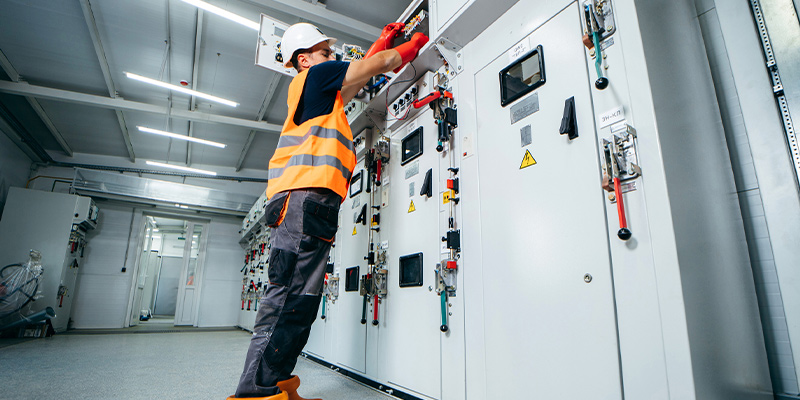Electrical controls refer to the devices, systems, and components that help automate, regulate, and manage electrical processes in a variety of industrial and commercial settings. These electrical controls ensure the safety and efficient operation of machinery and equipment and promote productivity and safety within different working environments.

While all electrical controls serve different purposes and have varying configurations, some of the most common components of these controls include the following:
- Switches and relays—These basic control elements allow or interrupt electrical circuits. These switches and relays are often used to control high-power devices using low-power control signals.
- Sensors—These sensors detect the physical parameters that allow the electrical controls to continue to operate, including factors such as temperature, pressure, humidity, and more. These sensors are responsible for converting physical values into electrical signals that can be used by different control systems.
- Timers and counters—Within an electrical system, timers can delay or control the activation or deactivation of devices. For example, a safety interlock might stop a machine if a door is open or if a person gets too close to moving parts.
- Motor starters—These devices control the start and stop of electric motors. They also protect these motors from overloads, short circuits, and other electrical faults.
The electrical controls used by your operation allow your machinery to operate precisely and reliability. To customize electrical controls for your operation, reach out to us at Electric Power Systems today.
